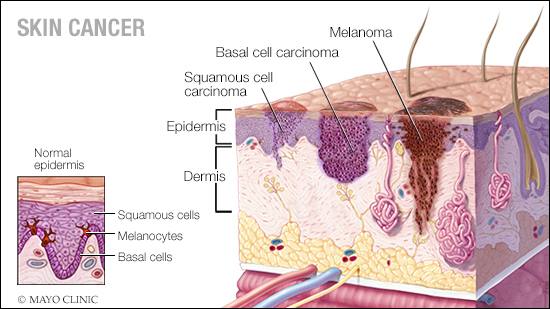-
Cancer
Living With Cancer: Understanding squamous cell carcinoma
 Squamous cell carcinoma
Squamous cell carcinoma
Squamous cell carcinoma is a common form of skin cancer that develops in the squamous cells that make up the middle and outer layer of your skin. Most often, the cause is prolonged exposure to ultraviolet (UV) radiation from sunlight, or from tanning beds or lamps. Avoiding UV light reduces your risk of squamous cell carcinoma and other forms of skin cancer. Learn more about the symptoms of squamous cell carcinoma and what you can do to keep yourself safe.
Cancer fatigue: Why it occurs and how to cope
Fatigue, usually described as feeling tired, weak or exhausted, affects most people during cancer treatment. Cancer fatigue may be caused by many factors, and the factors that contribute to your cancer fatigue may be completely different from those of someone else. Find out more about cancer fatigue, what you can do on your own to cope and when you need to seek medical care.
Treatment of soft-tissue sarcoma
Soft-tissue sarcoma is a rare type of cancer that begins in the tissues that connect, support and surround other body structures. This includes muscle, fat, blood vessels, nerves, tendons and the lining of your joints. Your treatment options will depend on the size, type and location of your tumor. Because there are so many different types of soft tissue sarcoma, it's important to determine the exact nature of each tumor so that the best treatments can be chosen. Learn more about the treatment options for soft-tissue sarcoma.







